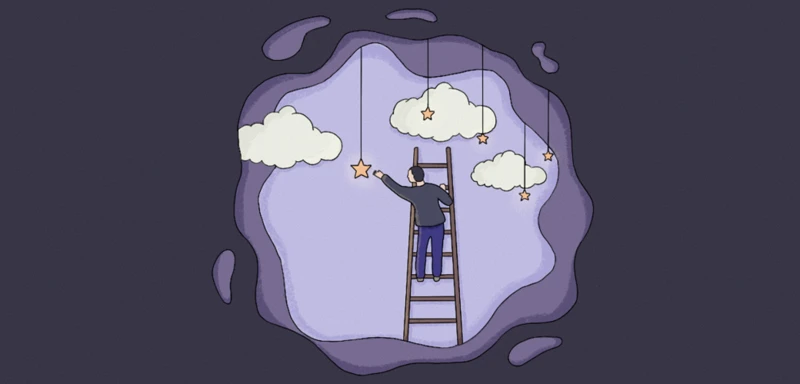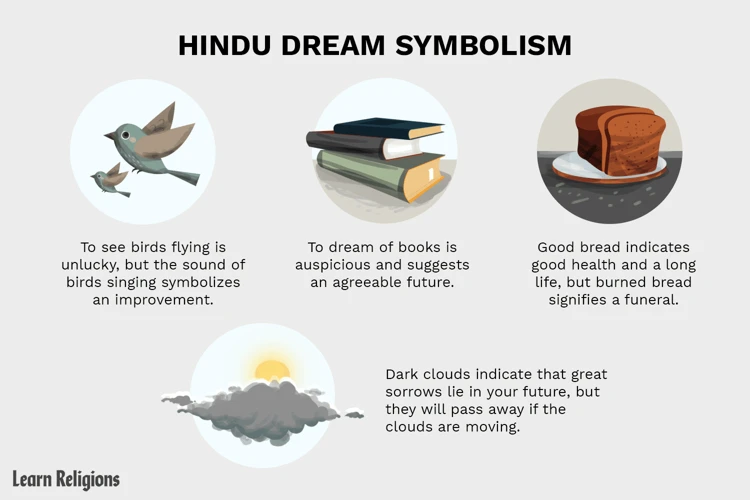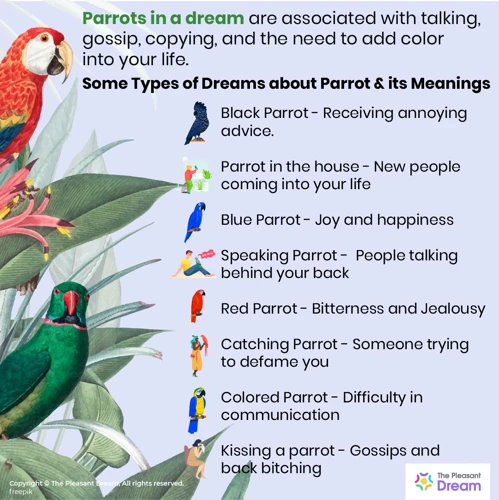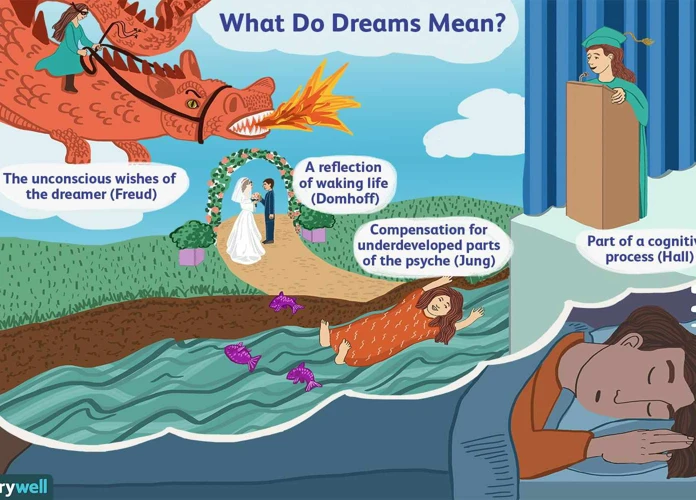Have you ever woken up from a dream and wondered what it all meant? Dreams have long fascinated and mystified us, with their obscure symbolism and hidden messages. In this article, we will delve into the intriguing world of dream symbols and explore their meanings. Whether you’ve dreamed of flying through the skies, teeth falling out, or being chased by an unknown entity, we will provide you with step-by-step guidance on how to interpret these common symbols. Additionally, we’ll touch upon the significance of other prominent dream symbols such as houses, animals, and vehicles. We’ll also explore how dream symbolism varies across different cultures and the benefits of keeping a dream journal. Get ready to unlock the secrets within your dreams and gain a deeper understanding of yourself and your subconscious mind.
What Are Dream Symbols?

Dream symbols are images, objects, or situations that appear in our dreams and hold meaning beyond their literal representation. They serve as a language of the subconscious mind, communicating messages and emotions that may be difficult to access in our waking lives. These symbols can be highly personal, unique to each individual, but there are also common symbols that many people experience. Anchors: When we dream of flying, it can symbolize a sense of freedom, liberation, or the desire to transcend earthly limitations. Flying dreams can also represent a sense of control or empowerment. On the other hand, falling dreams often reflect a loss of control, insecurity, or feelings of vulnerability. [source] Teeth falling out dreams may indicate anxieties about personal appearance or concerns about communication and self-expression. Water dreams can signify emotions, spirituality, or the subconscious mind. Being chased dreams may reflect feelings of anxiety, pressure, or avoidance of a certain issue. By understanding these common dream symbols and their possible interpretations, we can gain insight into our innermost thoughts and emotions.
Definition of Dream Symbols
Dream symbols can be described as the visual representations, objects, or scenarios that manifest in our dreams and hold a deeper meaning beyond their literal interpretation. They serve as a form of communication from our subconscious mind, conveying messages, emotions, and desires that may be hidden or repressed in our waking lives. These symbols can vary widely in nature and can encompass a range of elements such as people, animals, objects, locations, and even abstract concepts. Each individual may experience different dream symbols based on their personal experiences, beliefs, and cultural background. The interpretation of dream symbols is subjective and can be influenced by various psychological, cultural, and personal factors. There are also common dream symbols that are shared across cultures and hold universally recognized meanings. Understanding the definition of dream symbols can empower us to unravel the mysteries of our dreams and gain valuable insights into our own subconscious minds. If you’re interested in exploring specific types of dream symbols, such as the meaning of colors or the symbolism of animals, you can check out our articles on interpreting color dream symbols and unraveling the symbolism of animals in dreams.
Importance of Dream Symbols
The importance of dream symbols lies in their ability to provide a rich source of insight and self-reflection. Here are a few key reasons why dream symbols hold significance:
1. Unconscious Communication: Dream symbols act as a bridge between our conscious and unconscious minds. They allow us to tap into deeper thoughts, emotions, and desires that may be otherwise hidden from our waking awareness. By paying attention to dream symbols, we can gain a better understanding of our true selves.
2. Symbolic Language: Our dreams often express themselves symbolically, using metaphorical imagery to convey meaning. By exploring and decoding dream symbols, we can uncover hidden messages, unresolved conflicts, or unfulfilled needs. This symbolic language can provide valuable guidance and insights into our daily lives.
3. Problem Solving: Dreams can offer creative solutions or alternative perspectives to waking life problems. By analyzing dream symbols, we may gain fresh insights into difficult situations, find new approaches, or gain a deeper understanding of our current challenges. Dreams can serve as a valuable tool for problem-solving and decision-making.
4. Emotional Processing: Dreams often reflect our emotional state and provide an opportunity for emotional release and processing. By understanding the emotions conveyed through dream symbols, we can identify unresolved feelings and work towards emotional healing and growth.
5. Self-Reflection: Exploring dream symbols encourages self-reflection and introspection. It invites us to consider our beliefs, values, and desires, and how they may be influencing our waking experiences. Dream symbols can offer valuable insights into our hopes, fears, and aspirations, supporting personal growth and self-awareness.
By recognizing the importance of dream symbols and engaging in their interpretation, we unlock a powerful tool for self-discovery and personal transformation. Combining curiosity, open-mindedness, and a willingness to explore the unknown, we can unravel the hidden meanings within our dreams, gaining a deeper understanding of ourselves and our inner worlds.
Interpreting Common Dream Symbols

Interpreting common dream symbols can be a fascinating and enlightening endeavor. Here are a few key symbols and their possible meanings:
1. Flying Dreams: Flying in dreams often represents a sense of freedom, empowerment, or the ability to rise above challenges. It can symbolize personal growth, ambition, and the exploration of new possibilities.
2. Falling Dreams: Falling dreams can indicate feelings of insecurity, loss of control, or a fear of failure. They may represent a need to confront and overcome obstacles or anxieties in waking life.
3. Teeth Falling Out Dreams: Dreams about teeth falling out are commonly associated with anxieties about appearance, communication, or self-image. They may reflect feelings of vulnerability or a lack of confidence.
4. Water Dreams: Water dreams can have various meanings depending on the context. Calm and clear water may represent tranquility and emotional balance, while turbulent or murky water may symbolize emotional turmoil or hidden emotions.
5. Being Chased Dreams: Dreams of being chased often reflect feelings of fear, anxiety, or avoidance. They may indicate unresolved issues or a sense of being pursued by problems or responsibilities.
By understanding the potential interpretations of these common dream symbols, we can gain valuable insights into our subconscious thoughts and emotions, helping us navigate our waking lives with greater clarity and self-awareness.
1. Flying Dreams
Flying dreams are among the most exhilarating and vivid experiences one can have while asleep. This common dream symbol often represents a desire for freedom, exploration, and a sense of being unencumbered by earthly constraints. Anchors: Flying dreams can evoke a feeling of liberation, as if we have the ability to transcend the limitations of our physical bodies and soar through the sky. In these dreams, we may soar effortlessly, glide gracefully, or even defy gravity entirely. The experience of flying can be incredibly empowering, symbolizing a sense of control and mastery over our own lives. It may also reflect a desire to rise above challenges, overcome obstacles, and achieve great heights. However, it’s important to note that the specific context and emotions within the dream can provide additional layers of meaning. For instance, if the dream feels joyous and exhilarating, it may signify a positive period of growth and personal freedom. Conversely, if the dream feels fearful or lacks control, it could indicate a sense of uncertainty or anxiety about embarking on a new journey or taking risks. While flying dreams can vary greatly in their presentation and symbolism, they often represent a profound longing for liberation and the boundless possibilities that lie before us.
2. Falling Dreams
Falling dreams are a common phenomenon that many people experience during sleep. These dreams often evoke a sense of fear, anxiety, or a feeling of helplessness. When we dream about falling, it can symbolize a loss of control in our waking lives or a fear of failure. The sensation of falling in dreams may also reflect a lack of stability or insecurity in our personal or professional lives. Anchors: Some interpretations suggest that falling dreams may signal a need for change or a desire to let go of something that is weighing us down. They can serve as a wake-up call, urging us to confront our fears and take action to regain control in our lives. It’s important to pay attention to the emotions and circumstances surrounding the falling dream, as they can provide additional insights into its meaning. For example, if you feel a sense of liberation or excitement during the fall, it could indicate a willingness to take risks or embrace a new opportunity. Conversely, if the fall is accompanied by intense fear or a sense of impending doom, it might signify deep-seated anxieties or unresolved issues that need attention. The meaning of falling dreams is highly subjective and can vary depending on the individual and their unique life experiences. By reflecting on the emotions and events related to the falling dream, we can gain a better understanding of its symbolic message and potentially uncover valuable insights for personal growth and self-reflection.
3. Teeth Falling Out Dreams
Teeth falling out dreams are a common and often perplexing dream symbol that many people experience. When we dream about our teeth falling out, it can evoke feelings of fear, vulnerability, and even embarrassment. Some interpretations suggest that this dream symbolizes a loss of power or control in our waking lives. It may indicate anxieties about personal appearance or concerns about communication and self-expression. The act of losing our teeth in a dream can also represent a fear of aging or a fear of being judged by others. Additionally, teeth falling out dreams can be associated with feelings of powerlessness or a lack of confidence in certain situations. However, it is important to note that dream interpretation is highly personal, and different individuals may have unique associations with this symbol. While some may find teeth falling out dreams distressing, others may perceive it as a sign of growth, transformation, or a need for change. It is crucial to consider your own emotions and experiences when interpreting this dream symbol.
4. Water Dreams
Water dreams are a common and intriguing dream symbol that can hold various meanings depending on the context and emotions associated with the dream. Here are several possible interpretations of water dreams:
1. Cleansing and Renewal: Water is often associated with cleansing and purification. Dreaming of clean, clear water can reflect a desire for emotional or spiritual renewal. It may suggest a need to release negative emotions or to start fresh in some aspect of your life.
2. Emotional State: The condition of the water in the dream can provide insight into your emotional state. Calm and peaceful water may indicate emotional stability and tranquility, while choppy or turbulent water may symbolize emotional turmoil or uncertainty.
3. Depth of Emotions: The depth of the water in the dream can represent the depth of your emotions or subconscious mind. Shallow water may indicate superficial emotions or a lack of introspection, while diving into deep water can symbolize a willingness to explore your innermost feelings and desires.
4. Symbol of the Unconscious: Water is often associated with the realm of the unconscious mind. Dreams involving water may suggest that hidden emotions or subconscious thoughts are rising to the surface of your awareness. Pay attention to the emotions or symbols associated with the water to gain further insight.
5. Symbol of Change: Water is also a symbol of fluidity and adaptability. Dreams featuring water can represent transitions or changes occurring in your life. The state of the water, whether it’s calm or turbulent, can indicate how you’re navigating through these changes.
Remember, the specific meaning of water dreams can vary depending on the individual and the context of the dream. It’s important to consider your own emotions, experiences, and personal associations with water to fully interpret the symbolism in your dreams.
5. Being Chased Dreams
Being chased dreams are a common and intense dream experience that can leave us feeling scared, anxious, and on edge. When we dream of being chased, it symbolizes avoidance or a desire to escape from something in our waking lives. Every detail of the chase, from who or what is chasing us to the location and our own actions, can provide valuable insights into the underlying emotions and situations we are trying to dodge.
Here are some possible interpretations of being chased dreams:
1. The Pursuer Represents Inner Conflict: In some instances, the pursuer in our dreams may actually represent a part of ourselves or an internal conflict we are trying to avoid or deny. It could be an unresolved issue, a repressed emotion, or a fear that we haven’t confronted yet.
2. Escaping from Responsibilities or Pressure: Being chased in a dream could be a reflection of the stress and pressure we feel in our waking lives. It may symbolize our desire to escape from responsibilities, expectations, or overwhelming situations.
3. Confronting Fear or a Threat: Alternatively, being chased dreams might indicate that we are avoiding facing our fears or a threatening situation in our lives. The dream serves as a reminder that we need to confront and address these fears instead of running away from them.
4. Feeling Powerless or Vulnerable: Sometimes, being chased in a dream can stem from a deep-seated feeling of powerlessness or vulnerability. It may indicate a lack of control or an inability to confront challenges in our waking lives.
5. Seeking Freedom or Independence: On another note, being chased can also represent a desire for freedom and independence. It may suggest that we are yearning to break free from the constraints and limitations that are holding us back.
Remember, the specific details of the chase can help unravel the dream’s meaning further. Take note of the surroundings, the emotions you feel during the chase, and the outcome of the dream. Reflecting on these details can offer valuable insights into the areas of your life that may require attention or growth.
Other Prominent Dream Symbols

In addition to the common dream symbols we discussed earlier, there are other prominent symbols that frequently appear in our dreams. Houses and rooms in dreams often represent different aspects of our personality or the various stages of our lives. Each room or area within the house may signify different emotions, memories, or experiences. Animals in dreams can carry significant symbolism and may represent our instincts, emotions, or characteristics associated with specific animals. For example, a lion may symbolize courage and power, while a snake could represent transformation or hidden fears. Vehicles such as cars, trains, or planes often symbolize the direction and speed of our journey in life. They can also represent our control or lack thereof, in navigating through various situations. By paying attention to these prominent dream symbols, we can gain a deeper understanding of ourselves and the messages our subconscious mind is trying to convey.
1. Houses and Rooms
When it comes to dream symbolism, houses and rooms hold significant meaning. Dreams about houses and rooms can represent various aspects of our lives and inner selves. Here are some possible interpretations of dream symbols related to houses and rooms:
1. Different Rooms: Each room in a house may symbolize different areas of our lives. For example, a bedroom could represent our intimate and personal life, while a kitchen may symbolize nourishment and family dynamics. Pay attention to the condition and atmosphere of each room, as they can provide additional insights into the corresponding aspects of your life.
2. Exploring Unfamiliar Houses: Dreaming of exploring unfamiliar houses can indicate exploring new opportunities or aspects of yourself. It may signify personal growth, curiosity, or a desire for change and exploration.
3. Rooms Filled with Clutter: A room filled with clutter in a dream might reflect feelings of overwhelm, disorganization, or unresolved emotions. It could be a sign that you need to address and declutter aspects of your life to find clarity and a sense of calm.
4. Abandoned or Neglected Houses: Dreams of abandoned or neglected houses may indicate neglected aspects of your life or emotions that need attention. It could be a call to reconnect with parts of yourself that you have ignored or forgotten.
5. Haunted Houses: Haunted houses in dreams can symbolize unresolved traumas, fears, or emotional baggage. They may indicate that there are certain issues or memories from the past that need to be acknowledged and addressed for personal healing.
Remember, these interpretations are not fixed rules, but rather guidelines to help you explore the possible meanings of the dream symbols. The specific details, emotions, and personal associations you have with the houses and rooms in your dream will offer additional clues to their significance. Trust your intuition and reflect on your waking life experiences to uncover the deeper symbolism behind these dream symbols related to houses and rooms.
2. Animals
Animals in dreams are powerful symbols that can provide valuable insights into our subconscious thoughts and emotions. Each animal carries its own unique symbolism and meaning, and the interpretation of animal dreams is highly subjective to personal experiences and cultural associations.
1. Domestic Animals: Domestic animals such as dogs, cats, or birds often represent loyalty, companionship, and nurturing qualities. Dreaming of a beloved pet may reflect feelings of comfort and security in one’s waking life. It could also signify a need for emotional support or a desire for a deeper connection with others.
2. Wild Animals: Wild animals like lions, snakes, or bears hold a different significance. They may symbolize untamed instincts, hidden fears, or the need to confront and overcome challenges. For example, dreaming of a fierce predator can suggest the presence of unresolved conflicts or intense emotions that need to be acknowledged and addressed.
3. Mythical Creatures: Dreams featuring mythical creatures like unicorns or dragons can be particularly intriguing. These creatures often represent the extraordinary or the fantastical aspects of our imagination. They may signify a longing for magic and wonder in our lives, or they may reflect our subconscious desires and aspirations.
It is essential to consider the context and emotions associated with the animal in the dream. For instance, encountering a calm and gentle animal may indicate inner peace and harmony, while facing a menacing or threatening animal could symbolize danger or unresolved challenges in one’s life.
When interpreting animal dreams, it is helpful to explore personal feelings, experiences, and cultural associations with the specific animal. Anchors: For a more in-depth understanding of animal symbolism in dreams, you can refer to articles like “Unraveling the symbolism of animals in dreams” [source]. By delving into the rich symbolism of animals in our dreams, we can gain valuable insights into our subconscious mind and unlock deeper layers of self-awareness.
3. Vehicles
Vehicles in dreams hold symbolic significance and can offer insight into various aspects of our lives. The type of vehicle and the context in which it appears can provide clues to its interpretation. For example, if you dream of driving a fast sports car, it may suggest ambition, determination, and a desire for success. This dream symbolizes your drive and motivation to achieve your goals. On the other hand, a broken-down or malfunctioning vehicle might represent obstacles, setbacks, or a lack of progress in your waking life. It could indicate that you are feeling stuck or unable to move forward in a particular situation. Anchors: Additionally, dreaming of being a passenger in a vehicle can symbolize a lack of control or a sense of being guided by someone else’s decisions. This dream may reflect a need to surrender control and trust the process, or it could signify a feeling of being carried along by external forces. In some cases, the vehicle itself may hold cultural or personal significance. For example, a dream of riding a bicycle might symbolize self-reliance, simplicity, or a desire for balance in your life. Understanding the symbolism of vehicles in your dreams can help uncover deeper meanings and guide you in navigating various aspects of your waking life.
Symbolism Across Cultures

Dream symbolism varies across different cultures, with each culture attaching its own unique meanings to common dream symbols. In Western culture, for example, certain symbols have become widely recognized and associated with specific interpretations. Anchors: For instance, the image of a house can represent one’s self or one’s psyche, with different rooms symbolizing different aspects of the dreamer’s life. Animals, such as snakes or wolves, often symbolize hidden desires or instincts. Vehicles may represent the dreamer’s journey or direction in life. On the other hand, Eastern cultures may have different symbolic meanings for these same symbols. Anchors: In some Eastern cultures, for instance, a snake can be seen as a symbol of transformation or healing rather than a negative omen. Understanding the variations in dream symbolism across cultures adds a layer of complexity and richness to dream interpretation. It highlights the influence of cultural beliefs, traditions, and experiences on the way we perceive and interpret our dreams. By studying dream symbolism across cultures, we can gain a broader perspective and a deeper appreciation for the intricacies of the human psyche.
1. Common Symbols in Western Culture
In Western culture, there are several common dream symbols that hold significance and provide insights into our subconscious minds. Let’s explore some of these symbols:
1. Houses and Rooms: Houses and rooms in dreams often represent different aspects of our selves and our lives. A well-maintained, cozy house may symbolize feelings of security, comfort, and stability. Conversely, a dilapidated or chaotic house could signify emotional turmoil or a need for change. The different rooms within a house can represent different areas of our lives, such as the bedroom symbolizing intimacy and relationships, the kitchen for nourishment and sustenance, or the basement for buried emotions or secrets.
2. Animals: Animals are prevalent symbols in dreams, each carrying its own unique meaning. For example, a dog is commonly associated with loyalty and friendship, while a cat may represent independence and mystery. Seeing a snake in a dream could indicate transformation or hidden fears. Understanding the characteristics and symbolism associated with various animals can provide valuable insights into our own behaviors, attitudes, and emotions. [source]
3. Vehicles: Vehicles in dreams often symbolize our journey through life and the control we have or lack over it. A car may represent personal drive and ambition. Driving a car smoothly indicates a sense of control and direction, while losing control of the vehicle can suggest feelings of being overwhelmed or lacking control. Other forms of transportation, such as trains or airplanes, may symbolize different aspects of our life journey, such as stability or the need for adventure.
By understanding these common symbols in Western culture, we can begin to unravel the hidden messages within our dreams. However, it’s important to note that personal experiences and associations play a significant role in dream interpretation. It’s always helpful to consider your own unique perspectives and emotions when exploring dream symbols.
2. Symbolic Meanings in Eastern Cultures
Symbolic meanings in Eastern cultures have a rich history and diverse interpretations. In Eastern cultures such as China, Japan, and India, dream symbolism holds significant importance in various aspects of life. In Chinese culture, dreams are considered a means of communication between the mortal world and the spiritual realm. They are believed to provide insights into the future, guidance, and warnings. For example, dreaming of a phoenix is seen as a symbol of good fortune and prosperity. In Japan, dreams are often associated with spiritual realms and are believed to carry messages from ancestors or gods. The Japanese also believe in the concept of “yume otoko” or dream interpretation, where individuals can gain guidance for decision-making through their dreams. The interpretation of dreams in India is deeply rooted in ancient texts such as the Vedas and the Upanishads. Dreams are seen as a reflection of one’s inner self and are considered a form of divine communication. The presence of deities or specific symbols in dreams is believed to indicate certain blessings or warnings. It’s important to note that dream symbols in Eastern cultures can vary depending on regional beliefs and personal associations. Understanding the symbolic meanings in Eastern cultures can provide a fascinating glimpse into different perspectives on dreams and their significance.
Keeping a Dream Journal

Keeping a dream journal can be a valuable tool for unraveling the hidden meanings and patterns within our dreams. Dream journaling involves recording your dreams immediately upon waking, capturing as many details as possible. This practice helps to improve dream recall and allows you to revisit your dreams at a later time for analysis and interpretation. By writing down your dreams, you create a tangible record of your subconscious experiences, providing a deeper understanding of yourself and your inner thoughts. Keeping a dream journal can reveal recurring themes or symbols in your dreams, enabling you to identify patterns and gain insight into your subconscious mind. Additionally, a dream journal can serve as a creative outlet, inspiring new ideas or even helping to process and resolve emotional issues. Whether you prefer a traditional pen and paper journal or a digital platform, the benefits of dream journaling extend beyond the realm of dreams, providing a gateway to self-discovery and personal growth.
Benefits of Dream Journaling
Keeping a dream journal can offer numerous benefits for those seeking to explore their dreams and gain a deeper understanding of their subconscious mind. First and foremost, a dream journal allows you to capture and remember your dreams in vivid detail. By writing down your dreams immediately upon waking, you can preserve the intricate symbolism and emotions that may fade from memory as the day progresses. Additionally, keeping a dream journal can help identify recurring patterns or themes in your dreams. By recognizing these patterns, you can uncover underlying issues or concerns that may be influencing your subconscious thoughts. Furthermore, a dream journal serves as a valuable tool for personal growth and self-reflection. It allows you to analyze your dreams over time, detecting any changes or developments in your dream symbolism and exploring how they may relate to your waking life experiences. Moreover, maintaining a dream journal can improve your overall sleep quality. By actively engaging with your dreams and acknowledging their importance, you may develop a deeper connection with your subconscious mind, ultimately leading to a more restful and rejuvenating sleep. Whether you’re interested in psychological exploration, spiritual growth, or simply the enjoyment of documenting your dreams, a dream journal can provide invaluable insights and benefits for your well-being.
Tips for Starting a Dream Journal
Starting a dream journal can be a valuable tool for exploring the meaning behind your dreams and diving deeper into your subconscious mind. Here are some tips to help you get started:
1. Keep a journal by your bedside: To capture your dreams as soon as you wake up, make sure you have a dedicated journal and pen within reach. This will make it easier to jot down your dreams before they fade from memory.
2. Write immediately upon waking: Dreams are fleeting, and details can quickly disappear. As soon as you wake up, try to recall as much as possible about your dream and write it down. Even if it’s just a few key words or images, capturing any fragments can help trigger further memories.
3. Be consistent: Make it a habit to write in your dream journal every morning, even if you only remember a fragment or a feeling. The more you practice, the better you will become at remembering and understanding your dreams.
4. Include emotions and sensations: In addition to recording the events of your dream, don’t forget to note any emotions or sensations you experienced. Emotions can provide important clues about the underlying meaning of your dreams.
5. Use sketches or symbols: If you find it challenging to express your dreams in words, feel free to use sketches or symbols to represent different dream elements. This visual representation can help you recall and interpret your dreams more effectively.
6. Reflect and analyze: Regularly revisit your dream journal to look for patterns, recurring symbols, or themes. Reflecting on your dreams over time can provide deeper insights into your subconscious mind and your personal symbolism.
Remember, starting a dream journal is a personal journey, so find a method that works best for you. The key is to be consistent and open to the messages your dreams may hold. Happy journaling!
Understanding Personal Symbolism
Understanding personal symbolism in dreams is essential for accurate dream interpretation. While there are common dream symbols that hold universal meanings, it’s important to recognize that symbols can also have personal significance based on our unique experiences and associations. Anchors: Analyzing personal associations involves reflecting on our own experiences, memories, and emotions connected to specific symbols that appear in our dreams. For example, a snake may represent fear for one person, while it may symbolize transformation for another. Anchors: Emphasizing dream emotions is another key aspect of understanding personal symbolism. The emotions we feel during a dream can provide valuable clues about the underlying meanings. For instance, dreaming of being lost may evoke feelings of anxiety, reflecting a sense of confusion or a need to find direction in our waking lives. By paying attention to our personal associations and the emotions evoked by dream symbols, we can uncover deeper insights into our subconscious mind and gain a more accurate interpretation of our dreams.
1. Analyzing Personal Associations
When it comes to analyzing personal associations in dreams, it involves deeply examining the connections and meanings that specific symbols hold for you personally. While there are common interpretations for dream symbols, the significance attached to them can vary from person to person. To analyze personal associations, pay attention to how certain symbols or images evoke emotions, memories, or experiences unique to you. For example, the symbol of a snake may traditionally represent transformation or deceit in dreams, but for you, it might hold a personal connection to a childhood fear or a recent encounter with a snake. By reflecting on these individual associations, you can uncover deeper layers of meaning within your dreams. It can be helpful to keep a dream journal where you jot down any personal connections you make with dream symbols. Over time, patterns may emerge that provide valuable insights into your subconscious mind and personal symbolism. So, trust your own intuition and consider the meanings that symbols hold in YOUR life when analyzing your dreams.
2. Emphasizing Dream Emotions
Emphasizing dream emotions is a crucial aspect of understanding the deeper meaning behind our dreams. While dream symbols provide valuable clues, the emotions experienced during a dream can provide additional insights into our subconscious thoughts and desires. When analyzing dream emotions, it’s important to pay attention to both the intensity and quality of the feelings experienced. Strong emotions such as fear, joy, anger, or sadness often indicate that the dream content holds significant meaning to us. By reflecting on the emotions felt during a dream, we can uncover hidden fears, unresolved issues, or unexpressed desires. It is important to note that dream emotions may not always directly mirror our waking emotions, as they can be influenced by subconscious processes and symbolism. For example, a dream that induces fear may represent the need to confront a challenging situation, rather than indicating fear in our waking lives. On the other hand, a dream filled with joy and happiness may reveal our deepest desires and aspirations. By recognizing and exploring these dream emotions, we gain a deeper understanding of ourselves and our subconscious mind. Anchors: Understanding the importance of dream emotions can provide valuable insights when interpreting dreams involving animals, as they might be linked to deep emotional connections. [source] Similarly, when exploring color symbolism in dreams, understanding the associated emotions can help unravel the meaning behind the colors experienced in the dream. [source] By emphasizing dream emotions, we can unlock the hidden messages and personal significance within our dreams.
Conclusion
In conclusion, exploring the meaning of common dream symbols can be a fascinating and enlightening journey. Dream symbols serve as a gateway to our subconscious mind, offering insights into our fears, desires, and emotions that may be hidden or repressed. By deciphering these symbols, we can unravel the messages our dreams are trying to communicate to us. It is important to remember that dream symbolism is highly personal, and while there are common symbols, each individual may have their own unique associations and interpretations. Keeping a dream journal can be a valuable tool in this process, allowing us to track patterns and uncover deeper meanings over time. Anchors: Dream journaling helps us to remember our dreams more vividly and provides a record of our dream experiences, allowing us to analyze and interpret them more effectively. By paying attention to emotions in our dreams and recognizing personal associations with symbols, we can gain a better understanding of ourselves and our subconscious mind. Whether we are exploring Western symbolism or delving into the meanings in Eastern cultures, the study of dream symbols provides a window into the depths of our inner world. So, grab a pen and notebook and embark on the adventure of analyzing your dreams and unlocking the hidden meanings within. Happy dreaming!
Frequently Asked Questions
1. What is the purpose of dream symbols?
Dream symbols serve as a language of the subconscious mind, allowing it to communicate messages and emotions that may be difficult to access in our waking lives.
2. Are dream symbols universal or personal?
While there are common dream symbols that many people experience, such as flying or falling, dream symbolism can also be highly personal and unique to each individual.
3. Can dream symbols have multiple interpretations?
Yes, dream symbols can have multiple interpretations based on the individual’s personal experiences, emotions, and cultural background. It’s important to consider the context and how the symbol resonates with the dreamer.
4. How do dream symbols vary across cultures?
Dream symbols can vary across cultures due to different cultural beliefs, mythologies, and societal influences. For example, while snakes may be seen as symbols of wisdom and transformation in some cultures, they may be associated with danger and deceit in others.
5. Is there a dream dictionary that can interpret all dream symbols?
While there are many dream dictionaries available, it’s important to approach them with caution. Dream symbols are highly subjective, and their meanings can vary based on personal experiences. It’s best to use dream dictionaries as a starting point for exploration rather than relying solely on their interpretations.
6. Can we control the appearance of dream symbols?
Lucid dreaming techniques can allow individuals to have some control over their dreams, including the appearance of dream symbols. With practice, it is possible to manipulate and interact with dream symbols intentionally.
7. How can keeping a dream journal help interpret dream symbols?
Keeping a dream journal can provide valuable insights into recurring symbols and themes and help recognize patterns and emotions associated with specific symbols. It allows for a deeper understanding of personal symbolism over time.
8. What role do emotions play in understanding dream symbols?
Emotions play a significant role in understanding dream symbols. Dream symbols often evoke specific emotions, and paying attention to these emotional responses can provide clues about the underlying meaning of the symbols.
9. Can dream symbols predict the future or provide guidance?
Dream symbols are more reflective of our subconscious thoughts, emotions, and experiences rather than predicting the future. However, they can provide valuable insights and guidance on our current state of mind and can be used for self-reflection and personal growth.
10. Are there professionals who specialize in dream symbol interpretation?
Yes, there are professionals such as dream analysts or psychotherapists who specialize in dream symbol interpretation. They can provide guidance and support in exploring the deeper meanings behind dream symbols.








